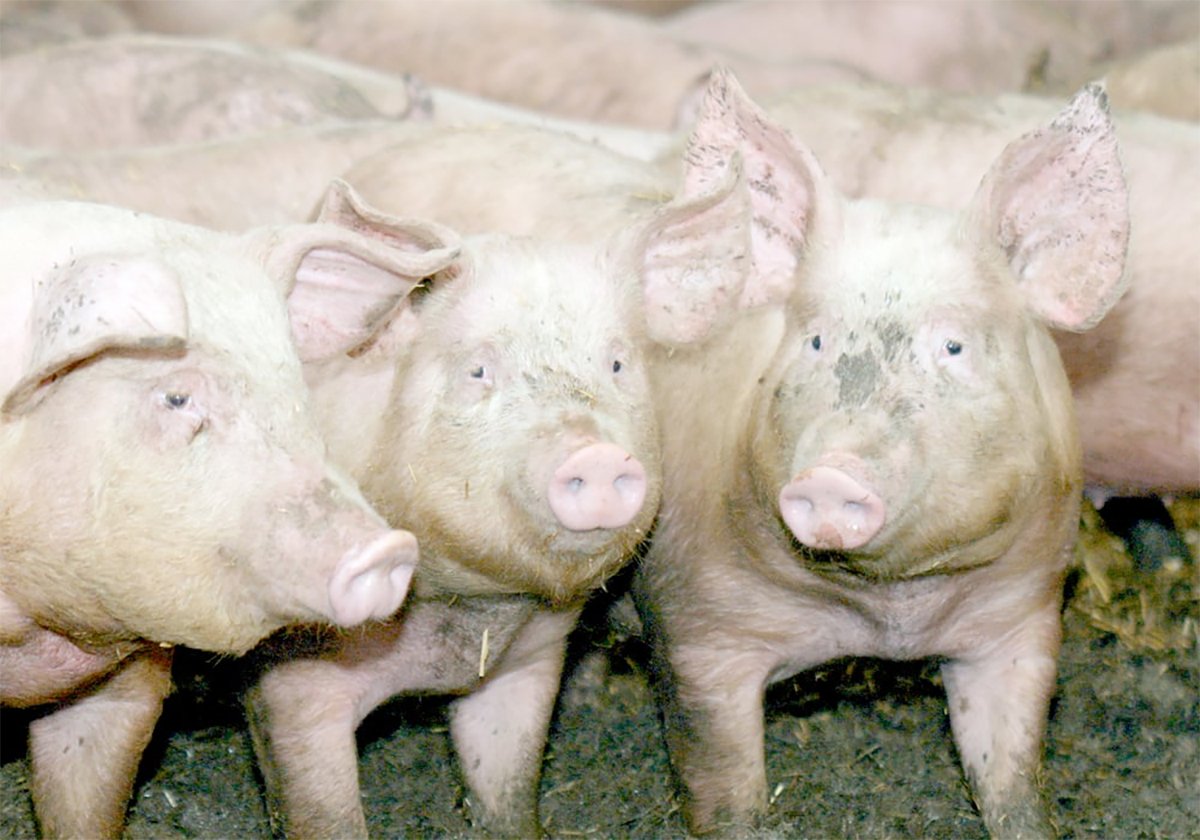Canada and the United States are introducing regulations to ban specified risk materials from all livestock rations to prevent the possible spread of BSE.
In an announcement July 9, federal agriculture minister Bob Speller and U.S. agriculture secretary Ann Veneman said separating brains, spinal cords and small intestines from the meat and bone meal mix should prevent risks to animal health. It is believed the agent causing BSE is harboured in these byproducts.
“It is another little step,” said Speller at a news conference during the Calgary Stampede.
Read Also

The Western Producer Livestock Report – October 2, 2025
Western Producer Livestock Report for October 2, 2025. See U.S. & Canadian hog prices, Canadian bison & lamb market data and sale insight.
New world standards for animal health suggest removing these high risk materials could help Canada maintain its minimal risk status for BSE so it could resume international trade.
A total removal of this material from poultry and pig feed should prevent possible cross contamination with cattle rations. Since 1997, both countries have banned feeding ruminant protein back to ruminants.
Speller said new possible uses of the specified risk material could include biofuels or fertilizer.
Gerald Ollis, Alberta’s chief veterinarian, said wide ranging industry and government consultation must determine the best disposal methods.
“The alternatives need to be worked out. There are various kinds of proposals that came forward that have received considerable discussion already on what the alternatives might be,” he said.
Following consultations, the Canadian Food Inspection Agency will introduce a regulatory proposal to require the removal and redirection of these materials, as well as prohibiting dead and downer cattle from all animal feed, including pet food.
The American Food and Drug Administration issued an interim final rule prohibiting the use of cattle-derived materials that could carry the BSE-infectious agent in human foods, including certain meat-based products, dietary supplements and cosmetics.
The Americans are also banning the use of recycled poultry manure in animal feed, a practice not accepted in Canada.
The announcement has presented more questions than answers, said Humphrey Koch of West Coast Reductions, representing most of Western Canada’s rendering facilities.
Until the rules are published in the Canada Gazette, no one is sure of all the new stipulations.
If the material is rendered, renderers want to know how the government wants it removed and what potential market use it may have. It could be buried in landfills or incinerated at considerable cost.
Koch said once all byproducts are rendered into meal, it is impossible to distinguish its origin because it converts into a homogenous product.
“We have told them all along that the science suggests as long as meat and bone meal derived from SRMs is not fed back to ruminants, there is no human or animal health problem,” he said.
He also questions how entire dead animals on farms should be disposed of under the new rules, as well as the burden placed on small provincial abattoirs with a limited capacity to properly separate materials.
“It’s a big problem and we have told them consistently to think carefully about what you want to do and are you going to achieve your objectives,” he said.
Some have suggested a ban on all ruminant-derived proteins to keep it out of livestock or poultry feed.
Alberta Pork chair Jack Moerman disagreed with a complete ban. It could drive up feed costs and there is no scientific evidence proving it is necessary.
“We don’t believe a total ban on meat and bone meal is a proper thing to do when scientifically there is no issue with anything but specified risk materials,” he said.
The poultry and swine industries have used animal-derived protein supplements for many years and the latest announcement could drive up feed costs.
However, Moerman said removing specified risk materials from the feed mix may help normalize ruminant trade after 14 months of closed borders to live animals.
The American Meat Institute, representing U.S. packers and processors, said it supports proposed restrictions on the use of poultry litter in ruminant feed, but opposes the mandatory elimination of specified risk materials from all animal feed. With no indigenous BSE case in the United States, the policy is unnecessary in light of feed restrictions already in place, it said in a statement.

















